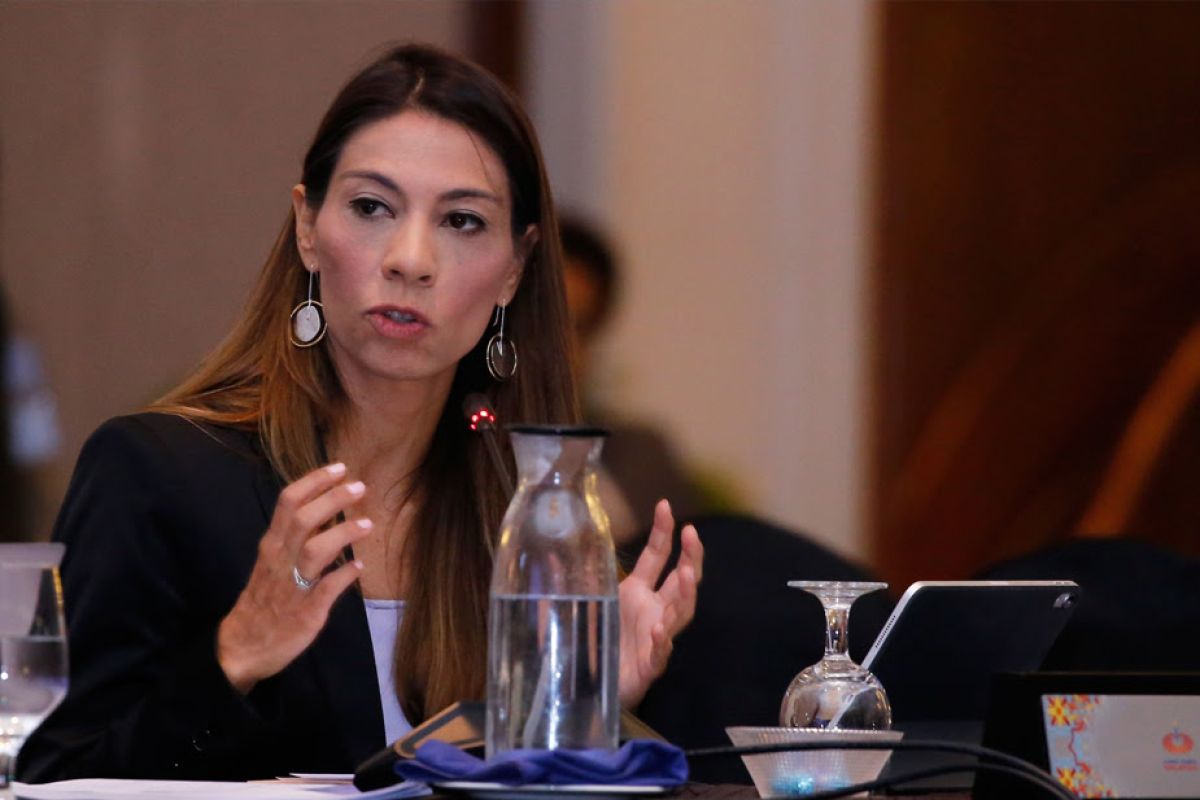"Along with taking measures to protect our health, we also need to adopt measures to facilitate trade and investment at the international and domestic levels. This is the key to ensuring that this health crisis does not lead us to a long-term economic crisis," Bobenrieth noted in a written statement issued by the APEC Secretariat and received here on Thursday.
The CTI is APEC’s largest group and is often at the frontlines of the forum’s work to realize free and open trade and investment.
Bobenrieth noted that the key components for economic growth -- trade and investment -- were acutely impacted by the pandemic.
The World Trade Organization (WTO) Director General highlighted that world trade is estimated to decline between 13 percent and 32 percent in 2020 across all sectors of the economy during the pandemic.
Trade and investment are also crucial in our fight against the pandemic, for instance, through facilitating the trade of essential items, such as medicines, medical supplies, and equipment.
The latter is recognized by the recent APEC ministers responsible for trade statement on COVID-19 and negotiated virtually in a comprehensive manner for the foremost instant.
The statement, encompassing several trade and investment commitments, comprises facilitating the flow of essential goods and services to fight the pandemic, making supply chains more resilient, ensuring that trade and investment is sustained, identifying and tackling unnecessary barriers to trade, upholding WTO’s notification commitments, as well as boosting electronic commerce and related services.
In the past few weeks, the CTI had channeled its focus on implementing these commitments. For instance, members are exploring ways to facilitate the trade of medical and other essential goods and services.
A recent voluntary CTI survey indicated that at the domestic level, 15 out of the 20 currently participating economies had eliminated or reduced tariffs temporarily or even permanently -- mainly on essential products -- to fight the pandemic.
In times of supply chain disruptions, closed factories and social distancing requirements, trade facilitation responses are paramount to maintaining market supply.
In that context, Bobenrieth pointed to another noteworthy finding that at the domestic level, over two-thirds of the 20 participating economies indicated that they had implemented temporarily or, in part, also permanently, new trade facilitation measures during the COVID-19 pandemic.
"An example of one such measure is accepting electronic submissions of trade-related documents and information," she remarked.
Bobenrieth further highlighted that nearly all participating economies had declared having applied measures to address value and supply chain disruptions caused by the pandemic.
"They have done so, with a focus on expediting and simplifying customs procedures, for instance, through priority procedures for essential products. Such measures are important since the COVID-19 lockdowns have resulted in delays in border and customs procedures and can lead to logjams at major ports," she expounded.
To this end, another crucial area of focus for the CTI is the extent to which the pandemic has disrupted global value and supply chains. Potential issues that necessitate attention are the levels of disruption, resilience, and adaptability of value and supply chains under the current COVID-19 pandemic and future crises.
It is also crucial to share best practices and to obtain inputs from the public and private sectors involved in maintaining and managing value and supply chains, Bobenrieth noted.
Last but not the least, the CTI is also diverting its attention to promoting transparency in COVID-19-related emergency measures, especially through notifications to the WTO.
Even as the pandemic has necessitated protecting human, animal, and plant life; the environment; and product safety, it is important to ensure that such measures are in accordance with the economies’ WTO obligations.
"This will keep relevant stakeholders, including importers and exporters, informed, so that they may act accordingly," she stressed.
Apart from these newly raised issues yet under discussion, it is also important to highlight that the CTI has myriad ongoing projects that can contribute to our collective fight against COVID-19, for instance, work related to digital trade, connectivity, the modernization of global value chains, implementing the WTO Trade Facilitation Agreement, and inclusive approaches to trade, among others. The CTI is currently tasked with intensifying such efforts.
"Hence, a lot of work has yet to be done, but as the CTI chair, I am confident that members can achieve positive outcomes and demonstrate strong commitment towards the APEC community and its collective fight against COVID-19. To contribute to the discussion, I am looking at ways to advance our work, including through virtual meetings," Bobenrieth noted.
"My role, as the CTI chair, is focused on facilitating the search for a consensus on work in the areas of common interest, flexibility, and collaborative dialogue in a back-to-basics spirit. My aspiration is that the CTI continues working with all the commitment and enthusiasm as before, even in a virtual format, in order to generate real support for the Asia-Pacific community," she affirmed.
EDITED BY INE
Related news: APEC urges "greener new normal", adoption of circular economy
Related news: Trade, economic slump deepen in APEC region; outlook remains bleak
Reporter: Yuni Arisandy Sinaga
Editor: Fardah Assegaf
Copyright © ANTARA 2020











